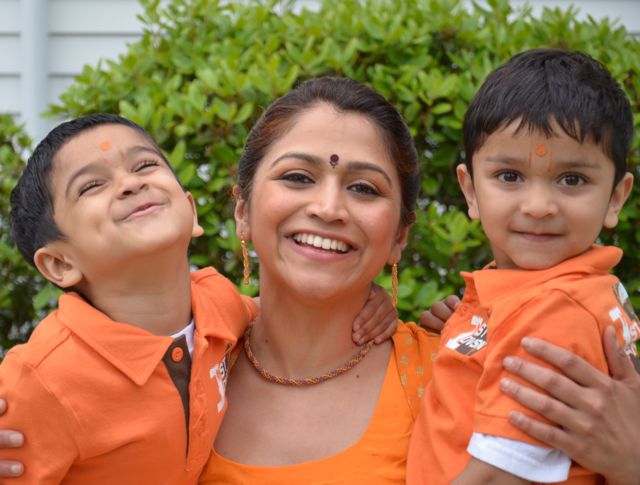SAP: If a South Asian parent absolutely cannot cope with the demands of his/her autistic child, what should he/she do?
The first thing to do would be to seek help. Autism can be extremely overwhelming. Every parent is going to have a time in his or her life where it’s going to be too much. And that happens to regular parents so it’s OK! If it gets too much, seek help.
I believe in having a confidante, having somebody you can talk to who is not going to judge you for what you’re saying. Surround yourself with people who are willing to accept you, even if they are a few, instead of wanting to have many friends who are not going to take care of you, have a few who will be there for you. That’s the first thing: seek help.
If social networking or the social part of it is not enough, seek professional help.There are counsellors; there are people who can help you out with this. It’s OK to take a day off in a week where you cannot deal with the child anymore and you want to get out—that’s perfectly normal.
The whole South Asian culture takes you away from that a lot because the mother is not supposed to be away from the child for that long; again that really makes it very hard for parents to come out in the open and say, “Well I can’t deal with this. This is too much for me. My child is too much for me.”
SAP: But seeking help is sometimes difficult, particularly for South Asians.
Yes, unfortunately there’s a huge taboo on seeking help. That’s a show of weakness in the South Asian culture. Seeking help means you have to show that you’re weaker, and that becomes difficult for parents to deal with. It would be a big help for people to overcome this taboo of asking for help. It would help the parents in a big way. It would include other people into their problems, make them aware of what they’re facing, and that would ultimately help.
SAP: Is it ever OK for a parent to give up responsibility for the child to another person for the long term?
That can be very hard, but if it comes to the hardest of choices that you have to make where you cannot, absolutely cannot deal with it, and you’re medically declared unfit to deal with it, you have any sort of psychological problems, yes, then the best other option would be for somebody else to care for your child.
But in that you really need to look at advocacy for your child, your child’s legal rights, look at the child’s future, how efficient is the carer going to be, how interested is the carer going to be in the long term, etc.
SAP: What are some unique challenges faced by South Asian parents of autistic children who live in their home country?
The thing I feel that South Asian parents struggle with, especially in India, Pakistan, Bangladesh—places where there is no government support—is that they have to struggle a lot for financial help, and for education even, because there’s not enough availability. They’re constantly fighting that battle.
SAP: People tend to focus on the drawbacks of autism. What are some of its positive aspects?
People with autism can be very loving, very sweet, very truthful. So if you want to know their opinion and if you’re willing to accept it, that’s the only time you should ask them because they will tell you the truth. If you say, “How do I look?” they will tell you, “Fat.” They don’t mean to be rude, but they say it exactly how it is. And I think that’s a great quality to have.
So looking at the good side, there’s so much joy in having a person with autism around. I work with people with autism every day, and every day we have something that we can laugh about, something that we can feel great about.
SAP: What are some support groups for South Asian parents of children with autism?
Action for Autism
Forum for Autism

